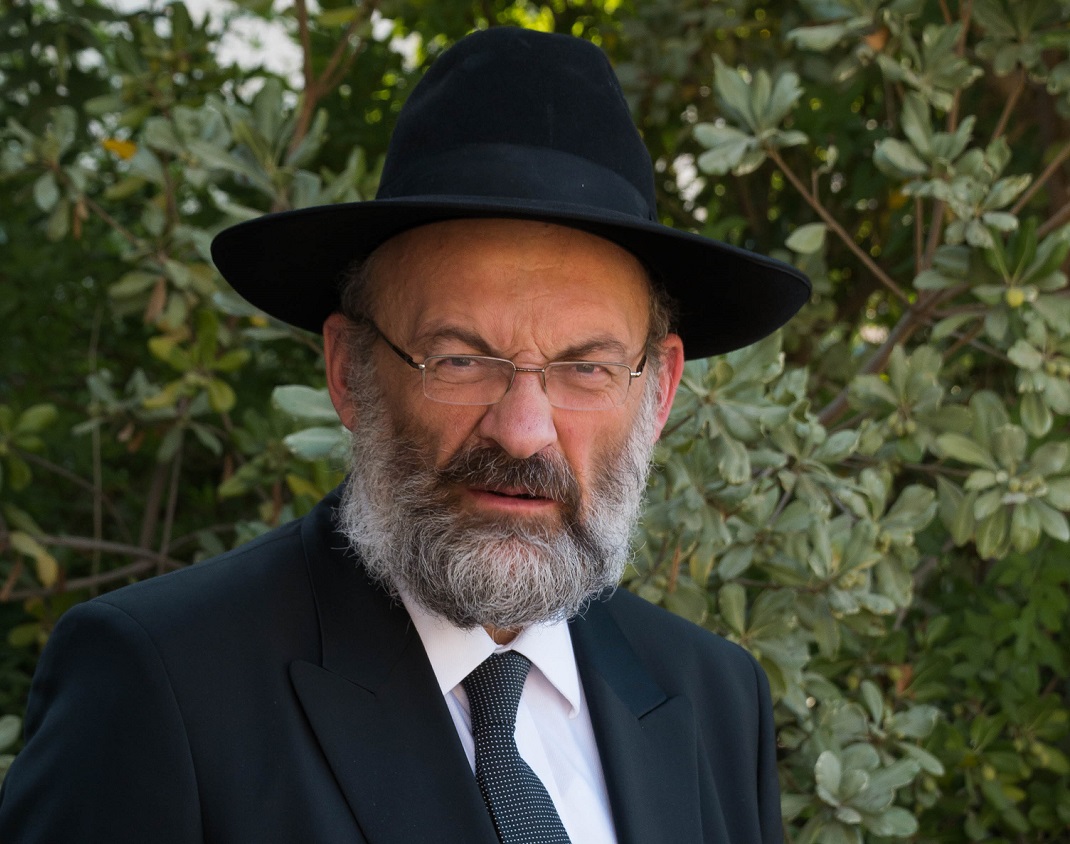Rav Gershon Lived the Rokei’ach’s Words

Rav Gershon Edelstein’s devotion to the Torah’s reasoning was what kept him going straight for a whole century
T
his wasn’t supposed to be a eulogy. A couple of weeks ago, it was time for me to prepare my weekly shiur on the Rokei’ach. I decided to focus on two short lines in the Rokei’ach’s poetic introduction, which speak about loving Hashem and the power of Torah. But as I meditated on these lines, I could think of no greater illustration of their wisdom than Rav Gershon Edelstein ztz”l.
The Rokei’ach writes: “No love can match a person’s love for Hashem.” Ahavas Hashem, says the Rokei’ach, is similar to interpersonal love, but on a higher level. A person experiences various forms of love in the course of life: love of one’s parents, love of a friend, love of a spouse. But the greatest love a person can develop is the love of Hashem.
Ahavas Hashem isn’t some lofty concept, a yearning of the soul for its Maker that can only be experienced by those who’ve attained spiritual purity. It’s the same type of love we’re all familiar with. To me, this idea is striking. What is human love, and how does it apply to loving Hashem?
When most people in the world talk about love, what they really mean is self-gratification. Deep down, what they really “love” isn’t the other person, but rather the benefit they derive from him, be it physical, financial, or emotional. Such love, as genuine as it might feel, boils down to a romanticized self-love.
As Rav Chaim Shmuelevitz wittily remarked: “If you love a schnitzel, why do you eat it? You don’t love the schnitzel — you love yourself.”
Real love isn’t based on the benefit we derive from it, and that is certainly not the case with our love for Hashem. It’s true, He showers endless blessings upon us, and we should be bursting with gratitude. Seeing how much Hashem cares about us naturally ignites feelings of love toward Hashem. But while Hashem’s gifts are a powerful springboard to reach ahavas Hashem, they’re not its sole foundation.
Every morning and evening during Krias Shema, we recite the pasuk that contains the mitzvah to love Hashem: “Love Hashem your G-d with all heart, with all your soul (life), and with all your money.” Rabi Akiva explains, “ ‘With your whole soul’ — even if he takes your life.” One must love Hashem even if He takes his money, his possessions, and even his life.
Ahavas Hashem isn’t a business deal. It’s not contingent on making a profit. Even if, chas v’shalom, a person suffers the tribulations of Iyov, he must still love Hashem.
The true meaning of ahavas Hashem, rather, is that Hashem is central to you. Your life revolves around Him. The highest level of love is ahavas Hashem. No matter what cards Hashem deals us, we must still make Hashem the center of our lives, till our very last moment. But, says the Rokei’ach, the same concept holds true for interpersonal love as well.
Making the other person central to you is the essence of love. Of course, you can’t make everyone the absolute center of your existence. You have to keep your relationship with each person in its proper framework. But loving someone means you put your own interests aside and make the other person central to you.
Rav Gershon was a shining beacon of love. He loved his talmidim to the utmost, treating each and every talmid as if he were the only one. He loved all Jews. Every time someone came to him for advice or a brachah, even a young child, all his other involvements momentarily ceased, and, for that moment, his life revolved around that person. Whether for an hour or a minute, that person was central to him.
Rav Gershon lived the Rokei’ach’s words: “No love can match a person’s love for Hashem.” Most of all, Rav Gershon’s life revolved around Hashem and His Torah. Teaching Torah in the ICU, preparing a shiur until literally his last breath, all that was the culmination of a lifetime in which Torah, Hashem’s ultimate ratzon, was the unrivaled focus.
THAT LEADS US TO the next line in the Rokei’ach’s introduction: “There is no lemed like the Torah’s reasoning.”
A lemed is a nail used to keep a yoked ox plowing in a straight line, by preventing it from turning its head. In other words, the most effective way for a person to keep morally straight is to occupy himself in Torah-true reasoning.
In Lashon Hakodesh, “reasoning” doesn’t mean formal logic. It means a line of thought that the mind accepts as truth. It might be a surprising insight, but in the end it rings true. Nothing in Torah is self-evident. Everything the Torah says is different and more profound than we’d come up with on our own. But a chiddush that’s in line with the Torah’s reasoning should make sense in the end.
One could have a chiddush that answers many questions, and not a single source disproves it; yet if it seems awkward to the mind, it might not be Torah truth. It could be highly logical, but not in tune with “the reasoning of Torah.”
Major chiddushim can be intellectually exciting, and make for a riveting shiur. Coming up with a sound chiddush gives us great satisfaction. But if one is willing to put aside his pride and subjugate his mind to the Torah’s reasoning, he stands a much better chance of reaching Torah truth.
To do that, you have to be genuinely more interested in what the Torah has to say than in your own chiddushim, no matter how golden. Only a person to whom Torah is central can do that. If the Torah is the center of your life, all you care about is the Torah’s truth, and the luster of your own chiddushim has no allure.
I attended a chaburah given by a gifted yungerman. In the middle, a talmid chacham in the audience posed a devastating question. It was painfully obvious that the whole chaburah was based on a mistaken premise. The yungerman paused for a few moments, then his face lit up.
He said with a grin, “Indeed, that’s actually what I meant!”
And with that, he skillfully steered the chaburah in a new direction. It was incredibly quick thinking, and the chiddushim were brilliant. But it wasn’t the Torah’s reasoning.
We’re enchanted by kishron, intellectual sharpness. But kishron doesn’t make you straight. In fact, Rav Yisrael Salanter says baalei kishron are at the greatest risk of moral corruption, because they’re capable of justifying their wrongdoing so convincingly that even they don’t see the falsehood. Bona fide Torah reasoning, binding your mind to the mind of Torah — that’s what prevents you from going off-track.
Rav Gershon loved Torah like no one else. The Torah was central to him, and he dedicated his life to understanding its reasoning. He was uncompromising in his quest for Torah truth, and refrained from saying chiddushim he wasn’t fully convinced of, no matter how enticing they were.
He once gave a brilliant explanation of a hard sugya that resolved many difficulties, but when he was asked to publish it, he refused.
“After much thought, I don’t think it’s emes,” he said simply.
Rav Gershon’s devotion to the Torah’s reasoning was what kept him going straight for a whole century. His integrity was simply unbelievable. Tragedy, social unrest, pandemic, machlokes — nothing could make him veer astray. The lemed of Torah guided him to total perfection of character.
Though Rav Gershon is no longer with us, we can still become his talmidim. Let’s try to make other people, and ultimately Hashem, central to our lives. When we learn Torah, let’s listen carefully to the Torah’s reasoning and discover its truth. May Hashem help us follow in his footsteps, and find our path to personal greatness. —
—Prepared for print by Rabbi Eran Feintuch
(Originally featured in Mishpacha, Issue 965)
Oops! We could not locate your form.







